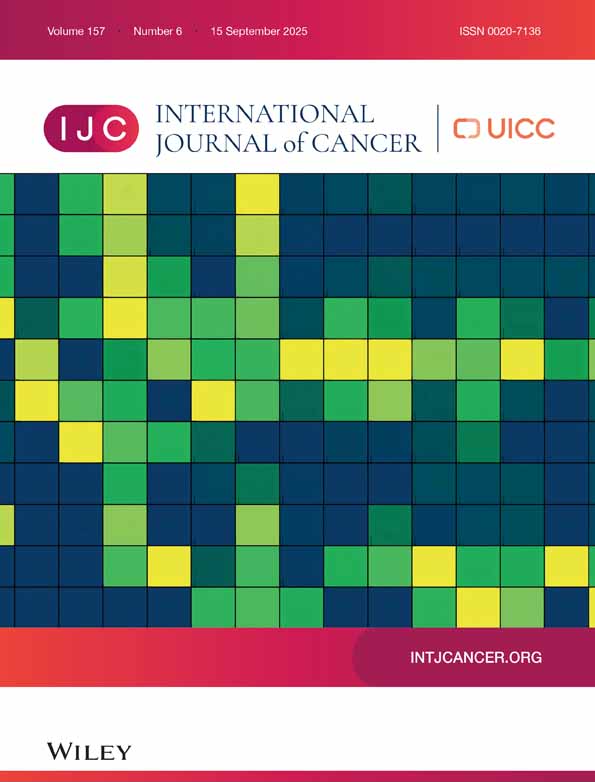Immunoresistant metastatic tumor variants can re-express their tumor antigen after treatment with DNA methylation-inhibiting agents
Abstract
Immuno-escaping variants which arise during metastasis of ESb lymphoma cells in syngeneic DBA/2 mice have been shown to exhibit selective resistance to lysis by ESb-specific cytotoxic T-lymphocytes (CTL). The immuno-resistant variants present no changes in the expression of H-2Kd molecules which appear to be the restricting elements for ESb-specific CTL. We now show that treatment of clonal immuno-resistant ESb variant cells with MNNG or 5′azacytidine can restore the sensitivity to tumor-specific CTL lysis in a high percentage of cloned progenitor cells. The acquisition of susceptibility to lysis by these clones is most likely due to re-expression of ESb-type tumor antigens because such cells (i) regain the capacity to compete with original 51Cr-labelled ESb cells for lysis by ESb-specific CTL, and (ii) regain the capacity to induce ESb-specific CTL in vivo. Our data suggest that the immuno-resistant variants are not cellular mutants but rather gene regulatory variants. This could explain: (i) their high frequency of occurrence during metastasis; (ii) the relative stability of the variant phenotype; and (iii) the reversibility observed after the use of DNA-demethy-lating and gene-activating drugs like 5′-azacytidine or MNNG.




